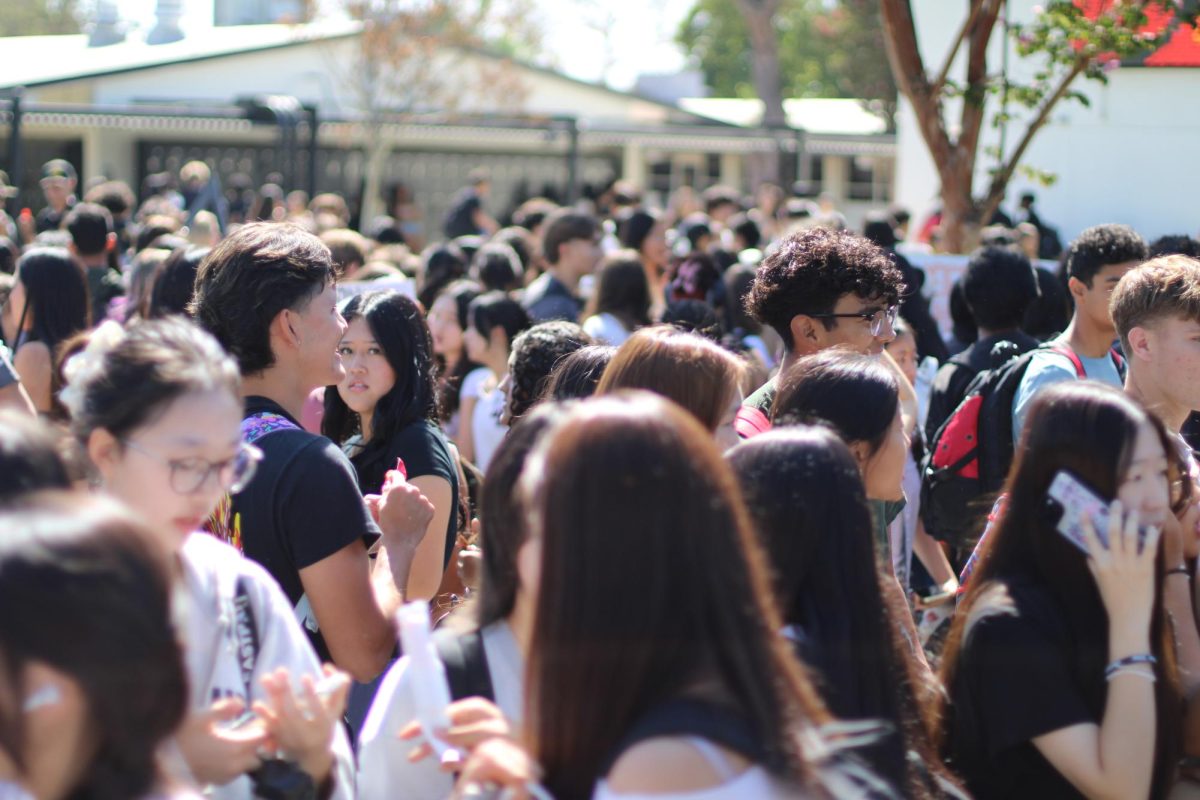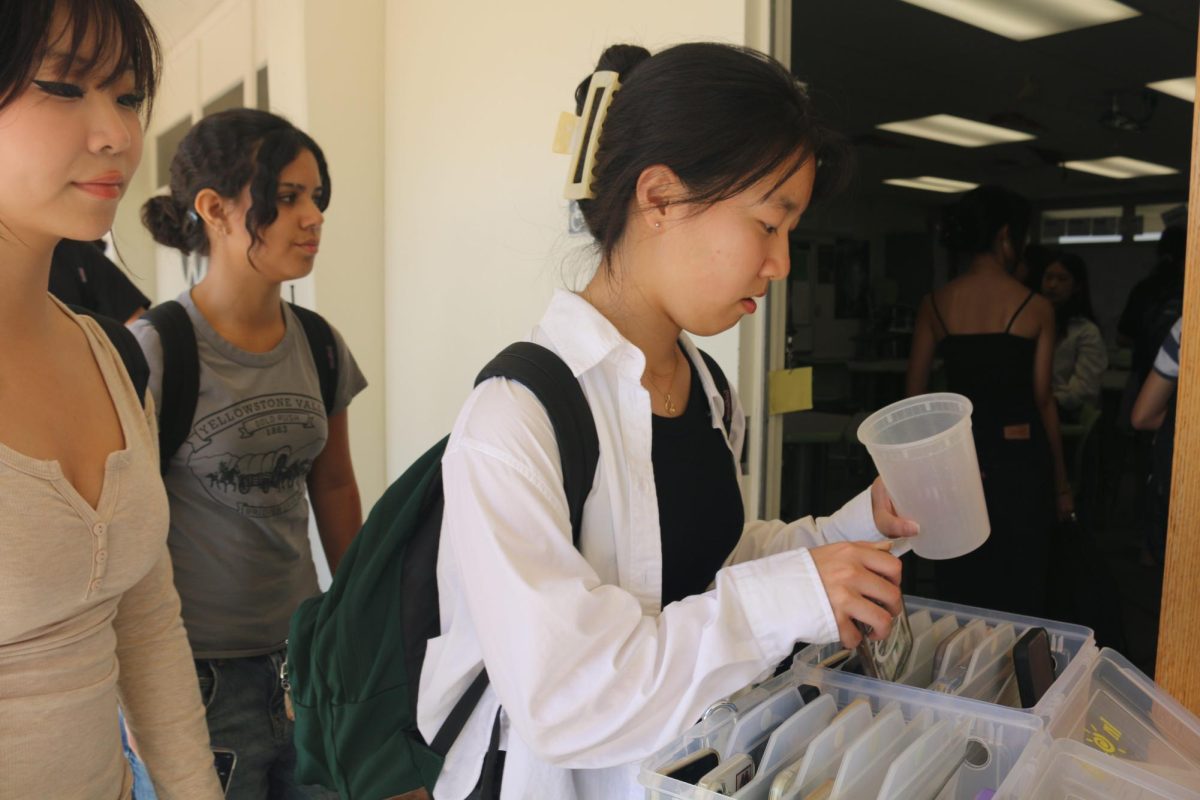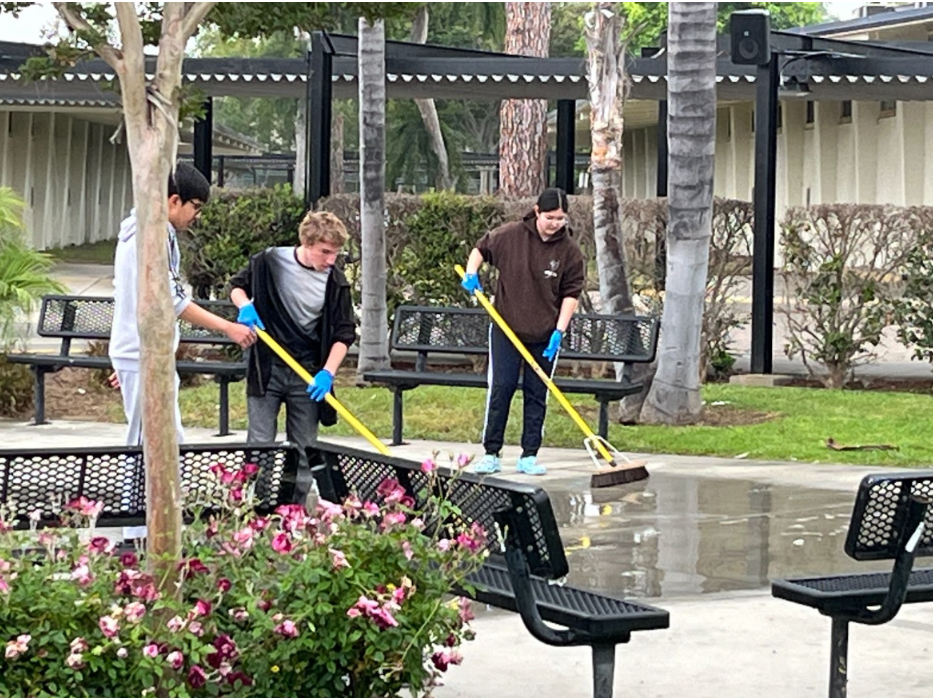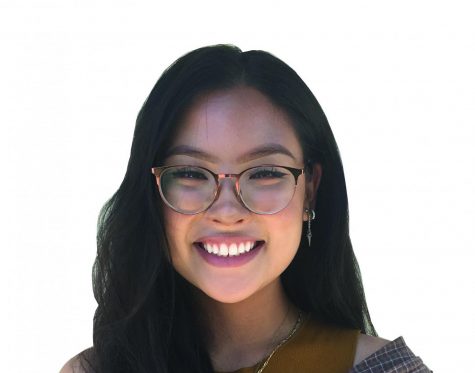Coming off a first-place finish for Sunny Hills’ Future Farmers of America [FFA] program last year in a state fruit tree judging contest, a new team of four students fell three points shy of repeating as champions, agriculture department officials said.
“With a second-place win this year, it allows other teams to know that last year was not just a fluke, and that we are serious competitors,” said agriculture teacher Brian Kim, who’s also the FFA adviser and fruit tree judging team coach.
Before the COVID-19 pandemic forced school closures statewide, the competing teams in the past had to travel to orchards in Fresno and Yuba City to evaluate real fruit trees ranging from almonds, apricots, apriums, nectarines, peaches and plums.
At each site, they are given a set of four trees for one round. They have 20 minutes to write down which trees are best in terms of balance, health and how much profit it would bring a farmer.
Then, they write down the reasons in order from best to worst and present to the judge their information.
The virtual format had Sunny Hills senior Jessie Reyes, juniors Sophia Winters and Austin Fung and sophomore Mayra Diaz evaluating pictures and videos of peaches, almonds, plums and apricot trees on July 16.
Each subsection of the competition — called “classes” — represented different types of trees that the teams had to grade out of a maximum of 150 points; the four classes were graded twice, once for their rankings and a second time for their respective reasonings totaling 1,200 possible points. FFA team members were also graded individually out of 50 points per class for a maximum of 400 points.
The Sunny Hills team virtually competed against nine other schools across California with a team from West Valley High School in Hemet placing first, scoring 1,123 points; the Sunny Hills team earned a total of 1,120 points and received pins for their achievements.
In response to the three-point difference for first place, Winters said she had mixed feelings.
“I was in total shock. I was so happy that we got so close but so sad at the same time,” Winters said. “It gave me hope that if we practice even harder for next time, we can get first place.”
Despite the changes to a virtual format, Reyes also credited Kim for his guidance.
“It was our adviser, Mr. Kim, constantly reassuring us that we have what it takes to place high in this competition that helped us move forward,” he said.
Geographically, being the only team from Southern California proved to be a disadvantage for the SH students even before the coronavirus pandemic hit, seeing as students lacked the ability to see orchards in person unlike their competitors — most of whom are from central and northern parts of the state where nurseries are more readily available for visitors, the FFA adviser said.
The team did visit one orchard location in Fresno March 12 to prepare for the live competition the next day, but that event never materialized because of COVID-19 pandemic-related closures.
“Looking at videos or pictures is hard because you can’t find small details like bugs, diseases or pests, which are important because you are evaluating the trees based on fruit production,” Kim said.
Besides the second-place finish, Reyes and Winters earned High Individual awards — announced on a live video streamed by the California FFA on Instagram July 20.
High Individual awards are presented to members who score among the highest out of 400 total individual points during their virtual presentation that they submit to be judged. These participants received ribbons for their achievements.
“I went back on the live video and listened to them announcing the high individuals where my teammate, Jesse, got second place, and I got fifth,” said Winters, who scored 374 points. “I was really shocked.”
The team plans to compete again next year whether it’d be a live or virtual event.
“I’m super stoked for next year because when we were always practicing, there was never a time that I did not have fun,” Diaz said. “Meeting with my fellow team members always made my day.”



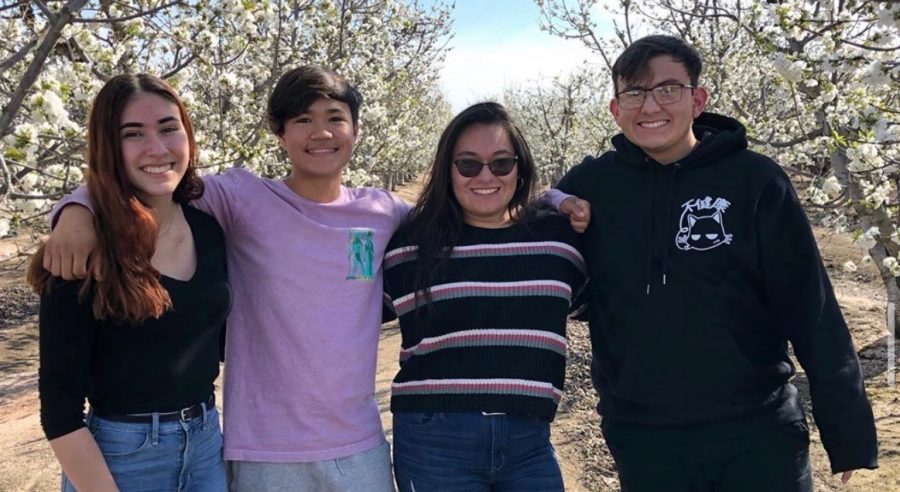


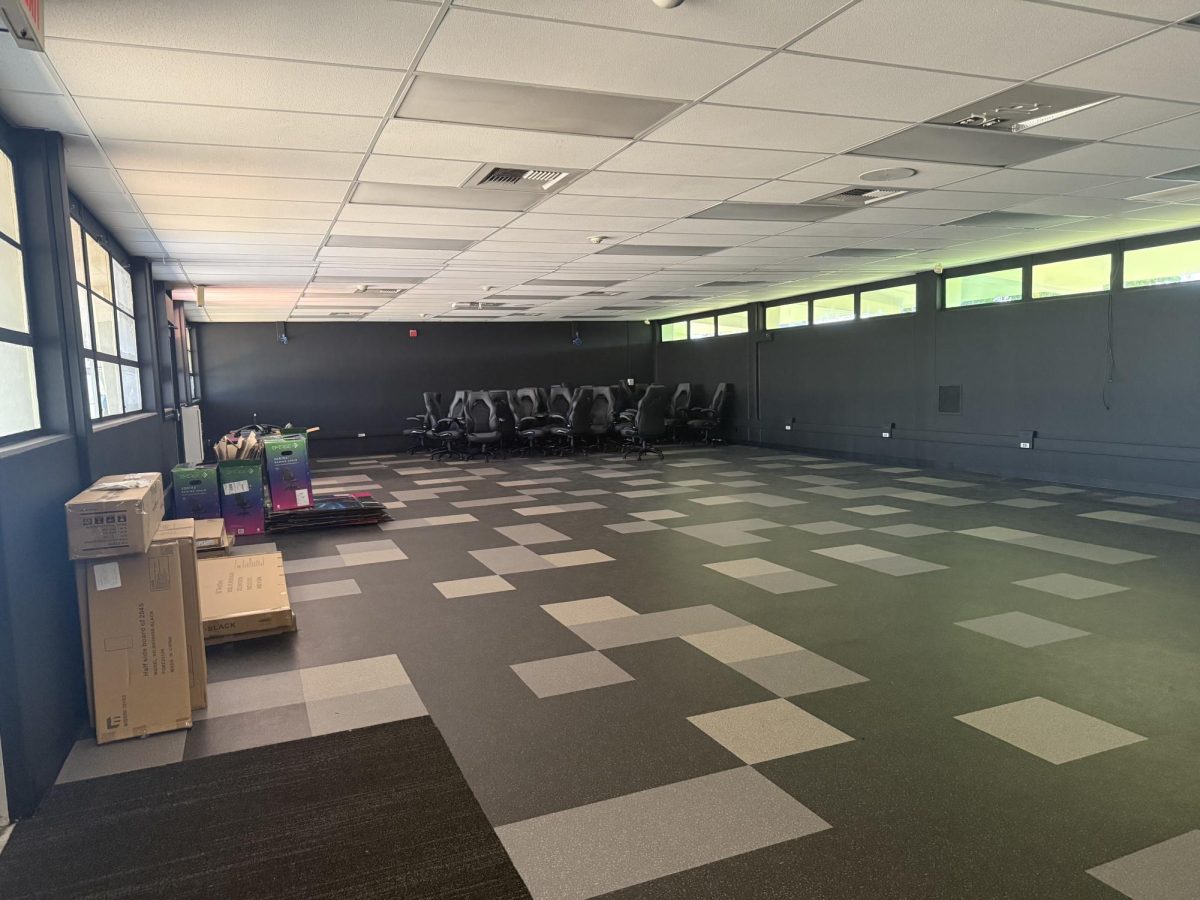
![Students and staff across the Fullerton Joint Union High School District [FJUHSD] received emails promoting a part time job offer with pay. The messages were set from compromised FJUHSD accounts.](https://shhsaccolade.com/wp-content/uploads/2025/09/image1-2-1200x527.png)
